Bill Bois’ Music Theory For Non-Musicians™
…if there was ever an art where breaking the rules is one of the rules, it’s music.
redditor u/COMPRIMENS
S2|E6 – What Makes Gospel Gospel ?
Religious music has been around as long as we’ve thought there was a higher power to worship.
That makes it prehistoric.
We’re pretty sure humans have been singing since the start of civilization, and we’re pretty sure humans have believed in gods for equally as long. Too bad that the mp3s of all those songs were lost in the Great Hard Drive Crash of 13,206 B.C.

“Grog. You had one job –
what do you mean,’I forgot to do a back-up?‘ ”
The first western musical notation, meaning an early form of sheet music, was for religious chants, a thousand years ago. That doesn’t necessarily mean that religious music was the most important of the time. The most important music of the time could have been drinking songs.

However, it does mean that the person who invented notation, Guido of Arezzo, was educated and knew how to write.
And that because Guido was a monk, the music he worked with was religious.
In more recent history, the people who invented what we now call gospel music weren’t as educated. It’s a sad story.
One of our most performed gospel songs, “Amazing Grace,” was written as a hymn by a former slave ship captain.
John Newton was an Englishman conscripted into the Royal Navy in the late 1700s. Other sailors found him to be the most profane man they ever met. It takes some pretty salty language to make a sailor blush.
On one of his voyages, he was captured and enslaved in Sierra Leone. Years later, he was recognized by English sailors, freed, and brought home. His experience as a slave is not what made him an abolitionist. In fact, he became the captain of a slave ship.
A storm off the coast of Ireland nearly sank his ship and he called on God to save him. When he made it home, he wondered if he was worth saving.
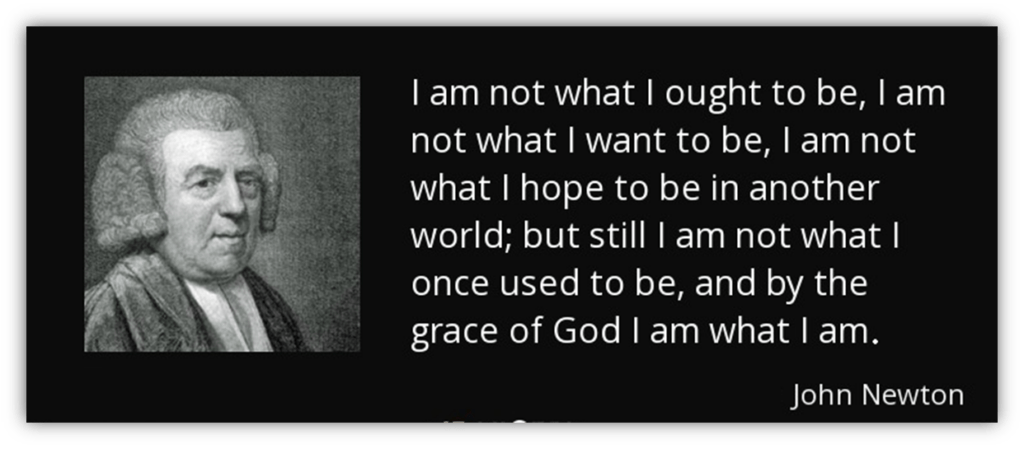
When he saw that God saved a wretch like him, he changed. He left the slave trade, became an abolitionist, and began writing religious songs, Amazing Grace among them.
It’s one of the many old songs that have become part of the gospel cannon.
However, what we now call gospel, generally speaking, is African American Christian music.
That makes me exactly the wrong guy to write this article.
I’m not religious, and I’m a slightly greenish shade of off-caucasian.
My childhood church didn’t have music other than the same few hymns the congregation sang poorly, and I didn’t see a black person in the flesh until I was six or seven.
That’s what happens when you grow up in one of our whitest states.
When I started this series six weeks ago, I had no idea I’d talk so much about race, and I feel ill-equipped to do so.
However, most of the major American genres we have today were created by African Americans, then embraced and altered by white Americans. The history of American music reflects the history of America, and half the history of America is the history of race and racism.
One thing we’ve always done in America is to face difficult problems by ignoring them. This is the case politically, anyway. If we can put off talking about uncomfortable issues until tomorrow, we will. That’s what our founding fathers did. They allowed slavery to continue because without it, the southern states wouldn’t have joined the union. So they decided to let future generations deal with it.

We call it, “kicking the can down the road.”
That, of course, resulted in the Civil War a century later.
Working in the fields, slaves sang the songs they brought from Africa and taught them to their children. Eventually they were translated into English, and new songs, some about the religion the slaves had been converted to, were made up. I say “made up” rather than “written” because most slaves couldn’t read or write, which was exactly how the slaveowners wanted it.
These songs became known as “Negro spirituals” but they often had a double meaning. The song Steal Away To Jesus, for instance, also meant stealing away to freedom. Slight changes in lyrics were ways of passing information about escape plans and the like. Just because these people couldn’t read or write doesn’t mean they weren’t clever.
There was often one person who could read, so when new lyrics or news became available, that person would sing them. The others would repeat them or respond in song. This call and response is an integral part of gospel.
Call and response is a technique that comes from African music. It’s a way of making sure the message is passed along and understood. You can hear it in this version of Angels by Cynthia Liggins Thomas & Averriel M. Thomas.
When slave owners found that slaves could communicate with drums, they took the drums away. They couldn’t take the rhythm away, though. That’s why gospel music is often percussive.
There’s a lot of clapping hands. But sometimes it has no meter or tempo at all. (In music theory, we call this “a piacere” which means “at pleasure.”)

In the 1920s, Thomas A. Dorsey played blues under the name “Georgia Tom.” He played piano with Ma Rainey and Tampa Red.
Some of their songs were pretty risque, so you wouldn’t think that would be where gospel started.
In his early 30s, he lost his wife and baby in childbirth. He buried them in the same coffin.
It affected him so much that he didn’t play music for six months.
He had a real crisis of faith. How can a man believe in God when God would allow such a thing to happen? Eventually, he came to realize that his pain was nothing compared to crucifixion. One day he sat at the piano and played familiar blues chords, but sang these words over them:
Precious Lord, take my hand
Lead me on, let me stand
I’m tired, I’m weak, I’m lone
Through the storm, through the night
Lead me on to the light
Take my hand, precious LordLead me home
Take My Hand, Precious Lord : Thomas A. “Georgia Tom” Dorsey
Take My Hand, Precious Lord may well be the first gospel song that wasn’t based on an old hymn.. It’s blues, but it’s slow and devout. It’s a prayer. There are dozens of recorded versions, and here it is sung by the great Mahalia Jackson.
Dorsey took up music professionally again, and still played those risque blues songs because they brought in more money than his religious material. But he continued making gospel records and is seen today as the creator of gospel.
Early gospel can be thought of as blues music with Christian lyrics. It evolved into its own genre but the blues is as big a part of gospel as it is of rock & roll.
The main instrument of gospel in these early years was the voice. It might be one voice or it might be a choir. Often the only other instruments, if there were any at all, were handclaps. There might be a piano, as in Dorsey’s music, but the instrumentation was always sparse and nowhere near as important as the message of loving the Lord as the Lord loves you.
Gospel influenced other genres, like country, rock & roll, and rhythm & blues, but sometimes it would slip unaltered out of the black church and into popular, secular, consciousness. A good example is “Oh, Happy Day” by the Edwin Hawkins Singers. It was an update of an 18th Century hymn and reached #4 on the U.S. Billboard Hot 100 in 1969. It hit #1 in Germany, France, and Switzerland.
Its instrumentation is piano, bass, and drums, but they’re very low in the mix. The chief instruments are the voices and the glorious reverb of the church it was recorded in. The singers clap while singing, so that’s pretty loud in the mix, too.
But not all gospel put the instruments on the back burner. As time went on, gospel recordings mixed the vocals and instruments in the more popular styles of the day. There were even some instrumental versions of well-known gospel songs.
Mainstream artists did gospel songs. Jazz singers like Louis Armstrong, Ella Fitzgerald, and Nat King Cole had gospel tunes in their repertoire. Jazz instrumentalists like Thelonious Monk did, too.
Notably, white country and early rock & roll singers added gospel songs to their repertoire, including Hank Williams and Elvis Presley. They weren’t cashing in on a trend or trying to seem more upstanding than they were. The music’s message and the music itself meant something to them. Something important.
Churches started putting more money into their music. They bought instruments and sound gear. Some churches installed light shows.
While there were some folks who saw this as commercializing religion, it had a very positive impact on musicians.
The term “woodshedding” is musicians’ slang for practicing. You go out to the woodshed and practice so no one can hear your mistakes. However, with church musicians, shedding is a slightly different thing. It’s where musicians play gospel music together. Sometimes it’s practice for a Sunday service, but sometimes it’s just a jam.
These sessions also became a safe space for young black people.
And when you practice that way and practice a lot, you get good.
I mean, really good.
Some of the most solid players I’ve ever jammed with were from the woodshedding tradition. Drummers especially. Take 16 minutes and watch this video about how these musicians get so good.
As the genre evolved, it split into different scenes, like most genres do. Some artists brought the Christian message to hip hop. Kirk Franklin, DC Talk, and TobyMac have each sold millions of records doing so.
The Contemporary Christian Music genre, or CCM, seems to appeal to mostly white audiences. It’s essentially soft rock, country rock, and some hard rock, with evangelical lyrics. If the lyrics aren’t explicitly Christian, they’re at least vaguely religious. Artists like Jeremy Camp, Casting Crowns, and Michael W. Smith are good examples of CCM.
There’s an important scene in the 2004 biopic Ray in which Ray Charles (Jamie Foxx) plays his new song for Della Bea Robinson (Kerry Washington). It’s I Gotta Woman, the song that would be his first #1 on the R&B chart. He sings about his love for her over a gospel piano part.
She calls it sacrilegious.
Gospel started as religious lyrics over secular music.
With secular lyrics over gospel music, Ray was on to something new.
Let’s talk about it next week.
Suggested Listening:

Peace In The Valley
– Mahalia Jackson
(1938)
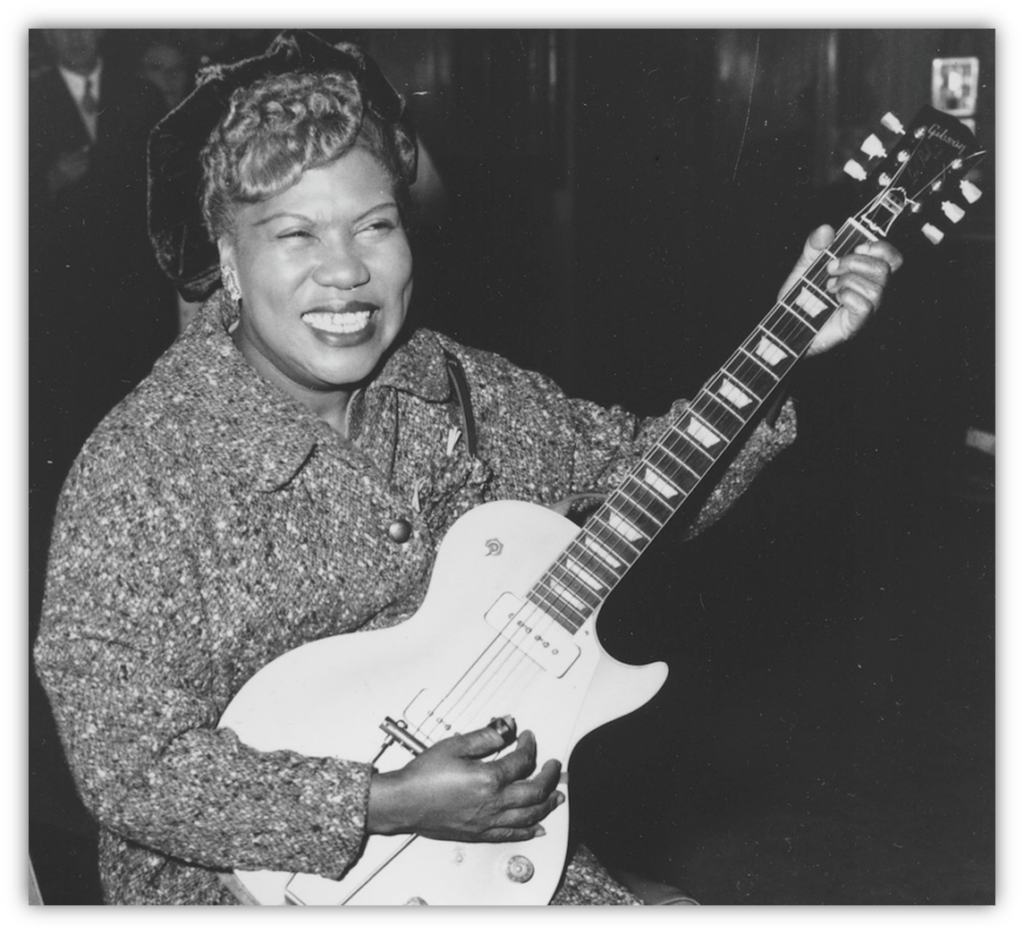
Everybody’s Gonna Have a Wonderful Time Up There
– Sister Rosetta Tharpe
(1948)

This Little Light Of Mine
– Clara Ward Singers
(1952)

While The Blood Runs Warm
– Aretha Franklin
(1956)

Bells Are Tolling
– The Fairfield Four
(1962)

I Didn’t Have No Doubt
– Lloyd Reese Singers
(1972)

My Tribute
– Andrae Crouch
(1972)

Peace Be Still
– Rev. James Cleveland
(1988)

Place In This World
– Michael W. Smith
(1990)

Flood
– Jars Of Clay
(1995)

Stomp
– Kirk Franklin
(1997)

Overcome
– Jeremy Camp
(2012)

Goodness Of God
– Cece Winnans
(2022)
(Let the author know that your liked their article with a “Heart Upvote!”)


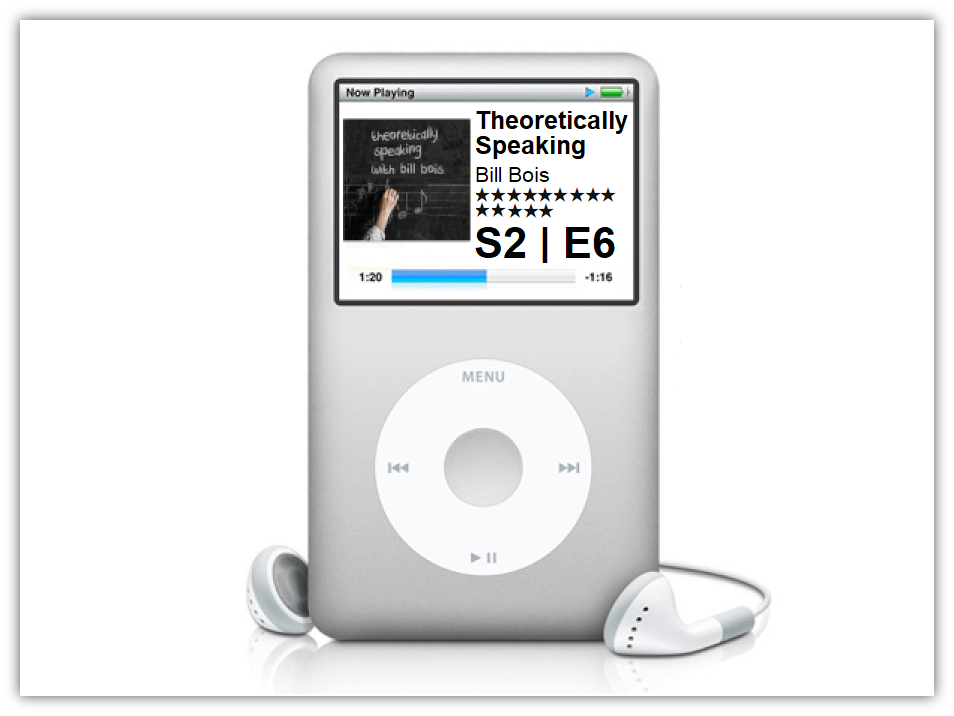
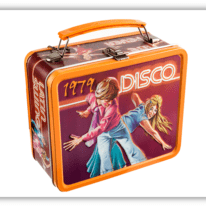
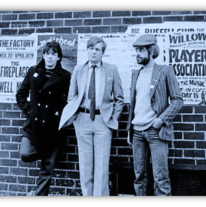
ADDENDUM: I submitted this article on Tuesday. On Wednesday, I heard a radio story about a new album called “The Urban Hymnal.” Its main artist is the Aristocrat Of Bands, which is the marching band at the HBCU Tennessee State University. That’s right, it’s a gospel album starring a marching band.
It also features gospel stars like Jekalyn Carr and Sir The Baptist. This is their first release. Check it out:
https://youtu.be/6682H458MTk
Great and relevant update!
Thanks for this, and thanks for sharing yet another terrific article for the site!
This is wonderful. I graduated from TSU. We didn’t have a great football team, but we won every half-time show.
Lovely post, Bill.
Now, with religious music, this really does tap into the deepest parts of my musical DNA.
“Amazing Grace” never fails to make me a little misty-eyed, so powerfully beautiful is its narrative of redemption from wretchedness. It was one of the first songs that I can remember deeply moving me as a child. The other being “Rock of Ages” (though with an arrangement that I only recently learned was written by James Ward in 1985! Good on you, Mr. Ward. I still prefer that version).
As for black gospel, I loved this anecdote that I learned from my blog research:
The Czech composer Antonin Dvorak came to America in 1892 to serve as director of the National Conservatory, and to learn the music of the “new world.” In a move that was unconventional at the time, he chose an African American student, Harry Burleigh, to be his assistant. From Burleigh, Dvorak first heard African American spirituals such as “Swing Low Sweet Chariot” and “Go Down, Moses.” Dvorak was struck by the beauty and power of this musical tradition. He later said:
“I am convinced that the future music of this country must be founded on what are called Negro melodies. These can be the foundation of a serious and original school of composition, to be developed in the United States. These beautiful and varied themes are the product of the soil. They are the folk songs of American and your composers must turn to them.”
Needless to say, Dvorak’s words were largely ignored by the musical elite–though Dvorak himself did incorporate the influence of spirituals into his work, most notably his 9th Symphony (the so-called “New World” symphony). No, the cultural revolution that spread Black music everywhere came not from above but from below, via novelty tunes and dance music. But ultimately, Dvorak was proven correct. Black music has long been the heart of modern American musical tradition.
Some of my favorite gospel music is the stuff that Sam Cooke and Johnnie Taylor recorded before they moved to secular pop music. Just gorgeous:
https://www.youtube.com/watch?v=NfhEE7NPVjY
As for the contemporary stuff, most of it is bad. Some of it I still like for nostalgic reasons (Steve Camp, Wayne Watson), though there are some tunes that I find genuinely moving. Amy Grant’s “El Shaddai,” Michael W Smith’s “Place in this World. And who doesn’t like “Shine Jesus Shine?”
Also, I knew of Kirk Franklin ever since I worked in Tower Records (so, starting in 2000), but I never actually gave him a chance until recently. Don’t sleep on him like I did. Really good!
Great Dvorak quote! I knew the 9th was based on his impression of the new world but didn’t know the details. Thank you.
Here’s a recording of Burleigh from later into the 20th century. It’s a lovely snapshot:
https://www.youtube.com/watch?v=a7kpcps7Jx0
(googling Antonin Dvorak)
There’s a Dublin band called A House. I’ve been name-dropping them for four years now, because they have no fans. Even “prefab” doesn’t seem to like them. As a response, he introduced me to the band A. Their most famous song is “Endless Art”. And it’s true; art is endless.
If you check out Endless Art make sure to also listen to More Endless Art. After releasing Endless Art it was pointed out that everybody referenced was male so they created another version that recognises notable female artists, authors, etc.
Nice to see an A House shout out, you’re not quite alone!
Checked it out. The way Dave Couse introduces the Bronte sisters is exciting.
As interesting and informative as ever. I’m not religious but I can still appreciate the power and intensity of gospel music. I was entranced watching the Aretha documentary Amazing Grace. I came across Sister Rosetta Tharpe years ago through another documentary about her touring across Britain in the 1950s. People like her and the joy of Oh Happy Day belie the rock and roll saying that the devil has all the best tunes. There’s some pretty good ones on the other side too.
Thank you, Bill, not just for the great look into Gospel and its siblings/offshoots, but also for the clear-eyed take on the indebtedness of musical genres to Africa and African Americans. I find a little humility goes a long way when I attempt to comment on genres popularized by African Americans but lack the experience to connect with what generated the art form. (I haven’t always been this way and cringe now when I think about the clueless, artless way I critiqued hip-hop and rap hits with friends in the late ’90s through early aughts. One thing to take issue with particular songs or even artists — another to rip wholesale on genres.) Anyhow, I’m grateful for this series and look forward to future installments.
When I learned about how Sam Cooke died, it depressed me. I learned about it relatively late in life. I don’t think it’s a universal story, such as the plane crashes and overdoses that claimed the lives of other music legends. I did a deep dive. I bought Sam Cooke’s SAR Story 1959-1965. Gospel music is not by go-to genre, but I love these songs.
On the punk side of gospel, what do you make of Violent Femmes’ “Jesus Walking on the Water” and “Faith”, from their second and third albums, respectively. I can’t tell if Gordon Gano is expressing a genuine belief in a higher power, or satirizing religion.
Mahalia Jackson has a memorable cameo in Imitation of Life.
When Sister Rosetta Tharp was inducted into the RRHOF, I streamed her music. She looked so cool; a black woman playing a guitar, which is something I never saw from this time period. Whoever nominated Tharp, did a great thing. She has new fans now.
I’d have to go listen again but I think everything the Femmes did was tongue in cheek.
And yes, Sister Rosetta rocks. Seriously.
I enjoyed that article. I am a regular attender of church, but our music is very very traditional hymns with no flamboyance. This very expressive, emotional and often loud music of worship is so foreign to me! But fascinating, too.
I think it’s safe to say that Elvis’ favorite music was the southern gospel music he grew up with. From more than one account I’ve heard that his deepest quality time was sitting at his piano and singing these songs. Many a jam session with his band members either started or ended with gospel music.
V-dog,
Something dawned on me as I was reading this entry.
What we see as a finished product is merely the tip of the iceberg. I can’t imagine the amount of work and research that goes into each article, and am thoroughly impressed by it.
You’ve really succeeded in covering this genre in a way non-musicians can appreciate, and I enjoyed listening to some of your examples I’d never heard before.
On a side note, Kirk Franklin is amazing. I’ve always loved his music, and grouped him with Sounds of Blackness, The Family Stand et al even if his genre doesn’t completely overlap with those.
Thanks, man. It does take some time but I enjoy every second.
Coming very late to this discussion. (Just found the article.)
I’m an old heathen, a complete non-believer, but it is impossible to not feel the power and the passion of gospel. It can nail you to the floor, until it forces you to squirm around a bit. I’m old enough to have grown up in the Deep South of “whites only” signs and segregated schools, but this music (and white gospel too) were environmental. To my young (and non-musical) ears, there wasn’t a whole lot of difference between church music and what came out of the radio, at least not until the Beatles and Motown came along. All of the early R&B, rock, and rockabilly musicians had church in the music, even if their bodies weren’t in the building, but the Beatles had a different sensibility, and Motown buffed a lot of the church right out. (Don’t get me wrong, Motown is great soul music, but it’s also mainstream pop.) Of course, the actual lines are not nearly as neatly drawn as our discussions make them out to be.
The churchiness is a big part of why James Brown, Ray Charles, Aretha, and a few others are amongst the greatest of 20th C performers. I can’t say that gospel is the music I seek out, but it’s always worth a listen.